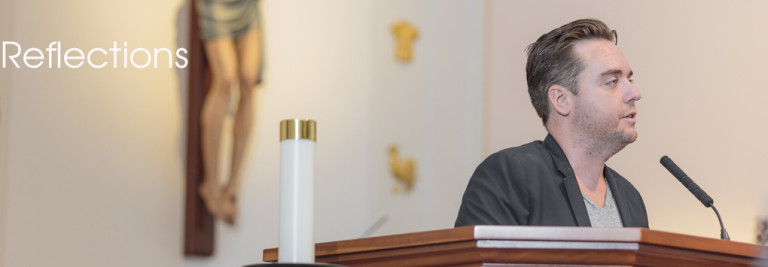In one of the most famous and deeply compassionate parables in the Gospels, Jesus tells us the story of what we now call “the Good Samaritan.” So famous is this story that believers and non-believers have come to use the image of the man who stopped to help a hurt man along the Jericho Road as the ultimate symbol of moral and civic responsibility. You may have heard of so-called Good Samaritan laws. Yes, this parable is a beautiful story of one man’s compassion, but if justice is “what love looks like in public,” as the fiery Dr. Cornel West has remarked, then we must challenge ourselves to see this story’s larger implications.
In his sermon “A Time to Break Silence” at New York’s Riverside Church, Dr. Martin Luther King tries to broaden the story’s scope. He says, “On the one hand we are called to play the Good Samaritan on life’s roadside; but that will be only an initial act. One day we must come to see that the whole Jericho road must be transformed so that men and women will not be constantly beaten and robbed as they make their journey on life’s highway. True compassion is more than flinging a coin to a beggar; it is not haphazard and superficial. It comes to see that an edifice which produces beggars needs restructuring.”
The Good Samaritan should be played in our minds over and over again as a reminder that charity is merely a first step, not that last one. Compassion must lead to even more deeper, truer compassion. Like any type of romantic love, a relationship may start with infatuation, but it must go deeper if it is to survive on the “highway of life.” This expanding idea of helping one another, this ripple of service comes with difficulties. Dorothy Day, the uncanonized saint of New York’s poor is said to have fired off, “If you feed the poor, you’re a saint. If you ask why they’re poor, you’re a communist.” You can sense her frustration. I’ve felt that too. As I’ve written before, we are thrown into categories of conservative versus liberal, religious or secular, but it is my hope during these hot debates we can find the cool waters of temperance.
“In these hot days, is the mad blood stirring,” Shakespeare once wrote (Romeo and Juliet, 3.1.7). It is my hope that we can re-read this famous story or read this Sunday’s First Reading from Deuteronomy and realize that our quest for justice doesn’t have to be a loud, passionate call. We just have to kneel down before the injured and help. It shouldn’t be heard, “it is something very near to you, already in your mouths and in your hearts; you have only to carry it out” (Deuteronomy 30:14). Have a wonderful week.
I’ll be seeing you,
Elliot



